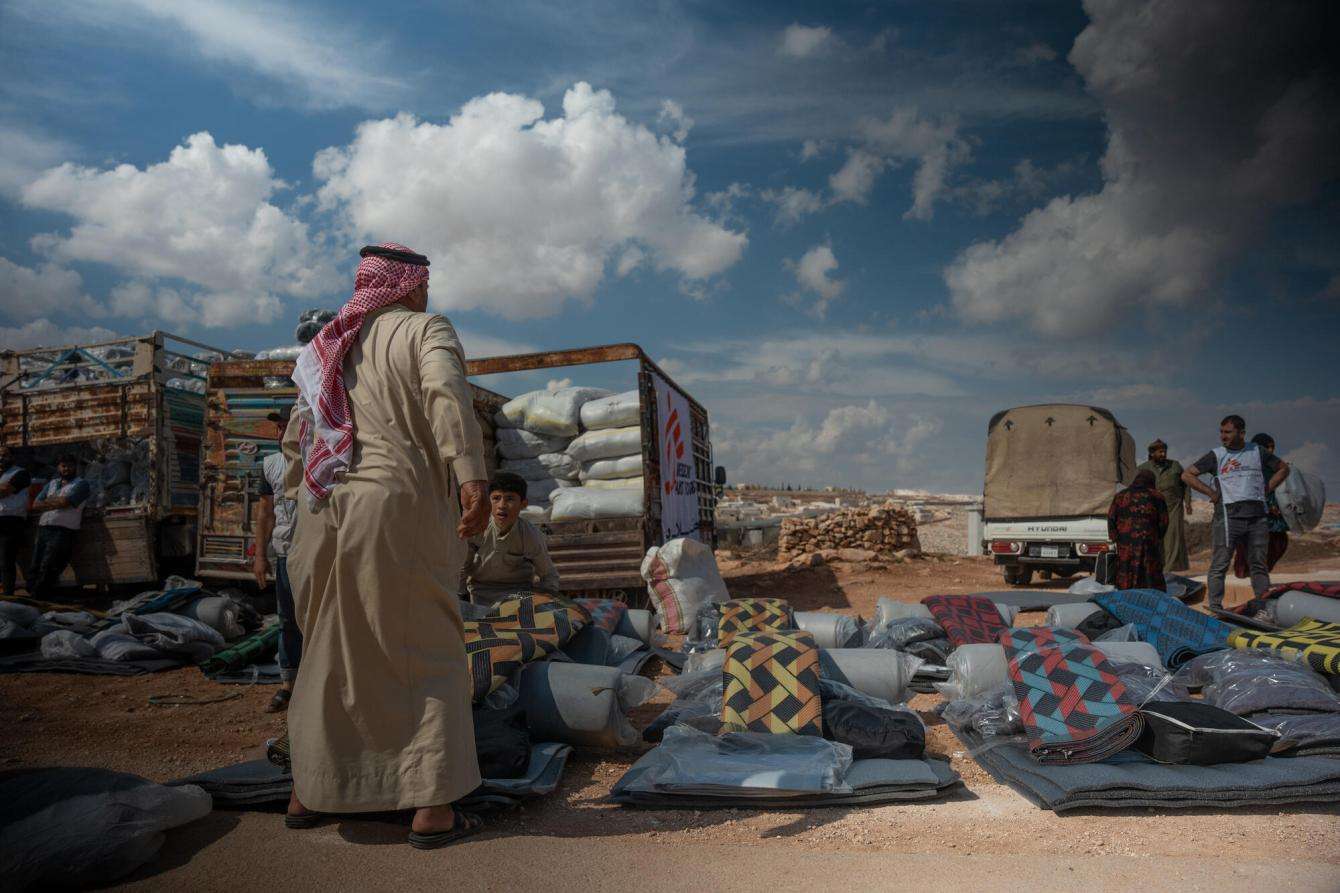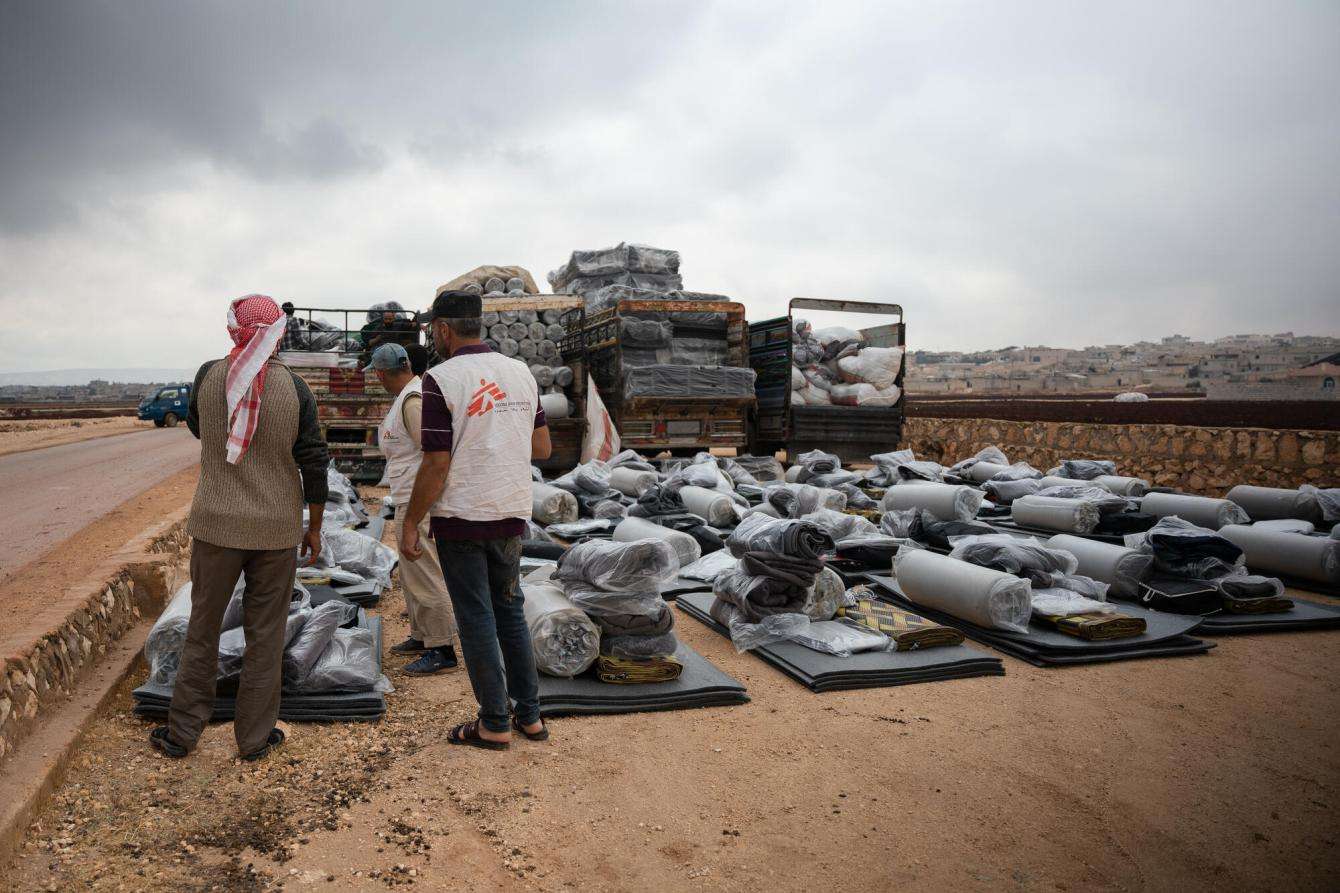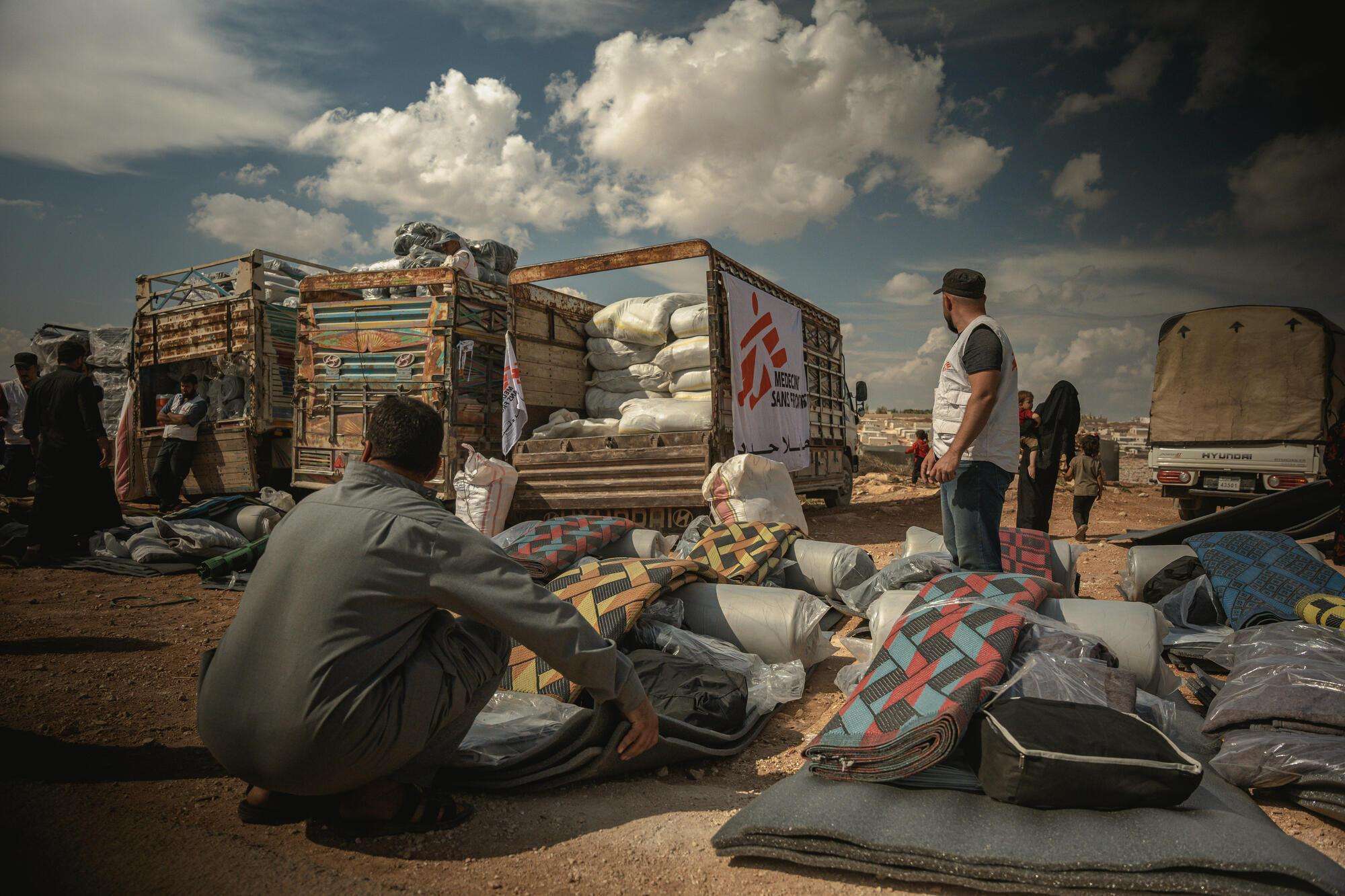“Winters here are harsh,” said Ahmed Al-Mohammed, who lives in a camp in Dana, a town in Idlib province, northwestern Syria. “Last winter, we had to [burn] scraps of plastic and shoes for heating because there were no safe heating materials available.”
Some two million displaced people live in camps across northwestern Syria, following 12 years of conflict and the devastating earthquakes that struck the region in February this year. A recent escalation in violence has displaced another 40,000 people in the area since October 5.
The camps displaced people are living in are overcrowded and have basic or non-existent infrastructure—many lack roads, electricity, running water, toilets, showers, and storm drains. Often, the camps are situated in remote, flood-prone areas, far from towns and essential services such as schools, markets, and health centers. Poor road conditions and insecurity from the ongoing conflict make camp residents even more isolated.

Flimsy tents and lack of fuel heighten winter health risks
After visiting 23 camps in Dana, Atme, and Maarat Misrin in Idlib province, Doctors Without Borders/Médecins Sans Frontières (MSF) teams found that more than 4,400 households lack the basic means to protect themselves from the cold. Many tents were only intended to be temporary shelters and are unable to withstand strong winds or heavy rains.
These tents have since become permanent shelters, "despite lacking the basic necessities of life and being exposed to harsh weather conditions in the winter,” said Marwan Al-Samao, MSF logistics supervisor in Idlib province. "Most tents have not been replaced for a long time and are in desperate need of thermal insulation, external insulation with plastic fabric, as well as basic furnishings like mattresses and blankets."
"The plastic fabric covering our tent is completely worn out and has not been replaced for four years,” said Al-Mohammed. “This camp is located in a rugged mountainous area which is prone to flooding. In winter, we struggle to reach nearby towns due to the condition of the roads.”
Fuel and funding shortages add to dangers
Now winter is approaching again. Temperatures in this region frequently drop as low as 5 degrees centigrade [41 degrees Fahrenheit], often accompanied by strong winds and heavy rains that can cause flooding and destroy the fragile tents in which camp residents live. These conditions expose already-vulnerable people, particularly children and the elderly, to the risks of cold-related diseases, respiratory diseases, infections, and frostbite. Meanwhile, a shortfall in aid funding has resulted in a limited provision of assistance.
A shortage of fuel for stoves is another major issue. Many people resort to lighting open fires inside their tents in an effort to keep warm. This presents a serious fire risk as tents are often made of flammable materials and are pitched close together in the overcrowded camps. In 2022, more than 180 fires were reported in camps in northwestern Syria.

How MSF is responding
MSF runs seven mobile clinics providing basic health care at 23 camps for displaced people in Idlib province. In October, our teams distributed winter kits to more than 3,800 families in these camps. Each kit contained thermal insulation, plastic fabric, mattresses, blankets, ground insulation and winter clothing. However, there are still thousands of families in need of extra supplies to get them through the winter months.
"Providing winter-related support for people in camps can significantly reduce winter-related diseases and contribute to better living conditions for families in need,” said Al-Samao. “However, we can cover only a small portion of the needs in the region. Since the recent military escalation [in northwestern Syria], the number of displaced people has increased notably, exacerbating their suffering and escalating people's needs, including for protection and medical care.”




